MercoPress. South Atlantic News Agency
Stories for July 3rd 2012
-
Tuesday, July 3rd 2012 - 06:20 UTC
The Vatican bank opens up to show it is not involved in ‘sinful’ activities
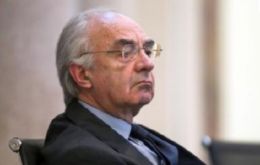
Vatican bank, one of the more secretive institutions of the secrecy-obsessed Vatican, opened itself up to a little external scrutiny in a bid to show it is serious about fighting money-laundering and being more financially transparent.
-
Tuesday, July 3rd 2012 - 06:14 UTC
Brazilian opposition blasts Rousseff for the management of Paraguayan situation
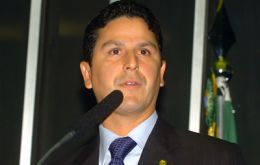
The leading member from Brazil’s main opposition political party described Uruguay’s claim that consensus was absent in the Mercosur decision to suspend Paraguay and to incorporate Venezuela as “extremely serious” and complained Mercosur has become a merely “ideological” grouping.
-
Tuesday, July 3rd 2012 - 06:04 UTC
Casa Rosada turns into a “dolls’ house” with “Cristinita” the witch leading
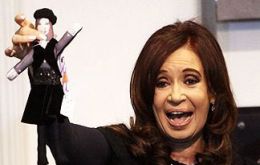
Argentine president Cristina Fernández presented on Monday evening a doll made to her image, “Cristinita” which is on sale at a museum next to Government House, Casa Rosada, in downtown Buenos Aires.
-
Tuesday, July 3rd 2012 - 03:31 UTC
EU markets’ watchdog investigating three major credit rating agencies

The European markets watchdog is investigating whether the big three credit ratings agencies' methods of evaluating banks are rigorous and transparent enough, its chairman Steven Maijoor told the Financial Times on Monday.
-
Tuesday, July 3rd 2012 - 02:55 UTC
Brazil considering more export-boost measures to counter declining trade surplus
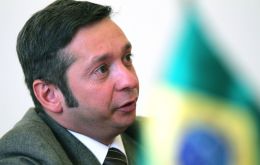
Brazil's government is studying measures to boost the country's exports in the face of a still-difficult global trade environment, Deputy Trade Minister Allessandro Teixeira said on Monday.
-
Tuesday, July 3rd 2012 - 02:50 UTC
Mandela’s eldest daughter South Africa’s ambassador to Buenos Aires

Argentina has handed Nelson Mandela’s eldest daughter, Zenani Mandela-Dlamini, credentials as South Africa’s ambassador to Buenos Aires, the foreign ministry said on Monday.
-
Tuesday, July 3rd 2012 - 02:16 UTC
Euro zone unemployment reaches another record high in May

Joblessness in the Euro zone rose to a new record high in May, pushed up by lay-offs in France, Spain and even stable Austria, as the several years long debt crisis continues to eat away at the currency bloc's fragile economy.
-
Tuesday, July 3rd 2012 - 01:37 UTC
ECB tells Greece to implement reforms: forget about “softer” austerity program
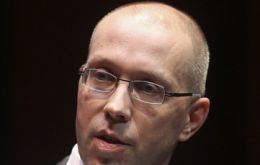
Greece must not lose time trying to renegotiate its foreign bailout but focus on reforms instead, European Central Bank policymaker Joerg Asmussen said on Monday, in a blow to Greek hopes of winning quick concessions from its lenders.
-
Tuesday, July 3rd 2012 - 01:14 UTC
Paraguay to investigate alleged meeting of military with Venezuelan minister

The new Paraguayan authorities have named a special committee of prosecutors to inquiry into the alleged meeting between Venezuelan Foreign Affairs minister Nicolas Maduro and Paraguayan military during the recent impeachment process.
-
Tuesday, July 3rd 2012 - 00:55 UTC
Brazil and Argentina to benefit most from Venezuela’s Mercosur incorporation
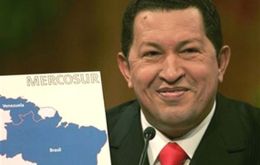
The formal incorporation of Venezuela to Mercosur next July will benefit mainly Brazil and Argentina since they could considerably increase their exports to the oil-rich country at the expense of the local production sector weakened by the economic policies from the administration of President Hugo Chavez, according to analysts.
